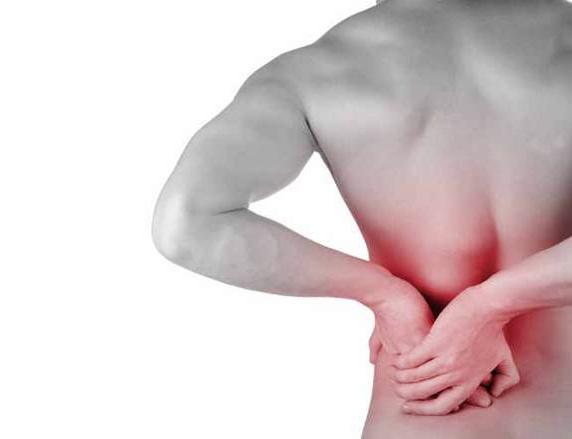Trauma has many impacts on the body both physically and mentally. The inter-relationship of physical symptoms from emotional trauma or a muscular 'memory' of trauma has been well documented and advocated as a logical and understandable response. Previous events can incur long lasting and particularly physically debilitating conditions where the body responds to initial trauma and reacts consequently for some time afterwards.
Now not to get all Louise L.Hay on you y'all, but there is scientific evidence to support that trauma does create a physical response and 'memory' of sorts within the body. Fascia, the body's soft tissue connective layer, responds to and adjusts to physical trauma with such conviction that it can 'hold' traumatic experiences physically, for months after the event. If someone were to hit you 20 times in the shoulder, the fascia surrounding the musculature, would sense impact and begin to 'tighten' or contract to protect the visceral tissue underneath. This response to traumatic impact, is designed to protect and physically adapt to stimuli. If you are not sure, try massaging a rugby league front row prop's upper trapezius. The constant impact of scrums and tackles make this area, physically locked to ensure that future impact does not damage the soft tissue underneath.
Emotional trauma brought about from physical trauma is sometimes hidden within psychological paradigms and can inhibit an individual for some time. Getting treatment over an area of physical trauma can and does regenerate the 'memory' or 'experience' of the original trauma. In this instance you are dealing with much more than scar tissue, but an emotional link to the trauma associated with an event or action. I remember being asked to work upon a young dancer who was having issues with her back. Upon de-robing, the young lady exhibited an array of stitching scars across her shoulder blades. She had been the victim of a knife attack many years earlier and the emotional response from simply being touched in that area was understandably very strong and also very 'raw'. Actually working with the area and working with the girl to be open enough to allow someone to work across that area resulted in a wonderful uplifting repeal of some of that trauma and, over time, a recognition and change in the emotional response to the area. Quite a priviledge.
SO what of acute trauma? Is it all 'in your head' when you find yourself physically suffering from something traumatic months later? A simple car crash, that leaves you temporarily incapacitated - can this type of trauma resurface in various ways? The answer is yes. It's an area of hot debate and sometimes actually defining 'trauma' can create a maelstrom of conflicting opinions. But on this point the academics agree, physical pain is a response to an original (albeit perceived) traumatic event.
Trauma creates a response in the nervous system of 'survival' (Sympathetic State) where cortisol and epinephrine are released into the body, causing increased blood pressure and blood sugar levels but more importantly "shutting down metabolic processes such as digestion, reproduction, growth and immunity". This state is not a maintainable situation and too much stimulation here creates too much 'fire' resulting in ulceration, hypertension, hypervigilance etc and basically an overstimulated system where healing cannot occur.
“...the nervous system goes into survival mode and sometimes has difficulty reverting back into its normal, relaxed mode again (the parasympathetic nervous system). Physical symptoms start to manifest when the body is in constant distress
Physical pain functions to warn a person that there is still emotional work to be done, and it can also be a sign of unresolved trauma in the nervous system.”
Traumatic experiences illicit emotional responses and often these are addressed and adjusted, particularly in regards to psychosocial adjustment. Oddly enough, the physical impacts of an event are sometimes overlooked. The nervous system may still be in 'survival' mode and thus any physical stimuli of an event can bring about a recurrence of trauma in the physical body. Some psychotherapists actually go so far to say that physical pain can be a sign that there is still some emotional work to do. In the case of my young dancer girl, this was evident that although the traumatic emotional work had been done, there was still more underlying work to be done in actually dealing with touch and physical, visceral response to the issue. As a dancer her back was immovable, there was a restriction (whether it be emotional or physical) locking her into a fixed position. In order to get her moving, there was obviously both an emotional and physical adjustment that needed to occur, and both must be addressed not independently of the other.
“In other words, a
person who has experienced a traumatic event is prone to
a resurgence of the physical complaint when reexposed
to people, places, or things that evoke recollections of the
event. This triggered reminder is not time limited and can
be prevalent years after the initial trauma exposure.”
Chronic pain can be a result of traumatic injury. The lymph system and cranio-sacral rhythms are directly affected by trauma and these effects continue to impact on a persons physical being well after the event. Lymph is directly associated with inflammation. Chronic pain often has elements of inflammation within it's prognosis, sometimes internal or at times external. Inflammation can come about from in-efficient function of the lymph system. Whilst delving into direct links between conditions such as Irritable Bowel Syndrome and Digestive issues with trauma and psychoemotional response is not the purpose of this article, the link is definetly there. Chronic pain after trauma is a direct physical response to an emotional stimuli. Even when the emotional factors may have been addressed and adjusted.
A surge in adrenalin (epinephrine hormone) under trauma is a result of stimuli. Adrenaline serves to give you boundless energy under stress in order to deal with what is in the moment. Blood is pumped to the vital organs, away from the extremities, the eyes dilate, muscles are filled with blood etc. This is your survival mode. Adrenaline does not downgrade its own production like other hormones so it is possible to have exceedingly high levels of epinephrine in the system. This may also explain why after an impact injury like a car hitting a pedestrian, the person can stand up and be fine, no physical symptoms. Alert and alarmed after the event sure, but they walk away.
What isn't addressed is that 24-48hrs later, or sometimes even a week later, epinephrine finally gets reabsorbed and that is when physical symptoms begin to make themselves known. High epinephrine levels allow us to not feel physical symptoms, ie pain. That's it's job. Don't feel pain so you can run away if you need to or jump out of the way! It's only after the reuptake of epinephrine into nerve receptors and the processing of the hormone from other enzymes occurs that this seemingly 'invincible' feeling leaves the body. This is when you can expect to feel the pain of the issue and this can be many days later. This impacts on those who are 'under performance pressure' already whether at work or in sport. I once saw a woman do a whole 15 minute duet on a sprained ankle - and she was flawless. Epinephrine is seriously powerful.
So don't be fooled by trauma and what it can do to your body. There are short term effects, long term repercussions and conditions that are brought about by trauma that can have long lasting and detrimental effects on your life for some time after. It's a complex beast and there are physical and emotional factors involved. Don't be fooled, it's not a syndrome - it's a symptom. So ensure you know what you have worked on after an incident and never downplay symptoms that may not be just going away. There's a reason they are there.
Peter Furness



